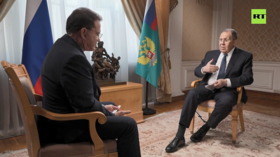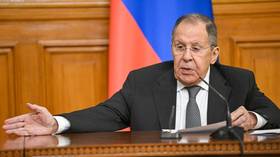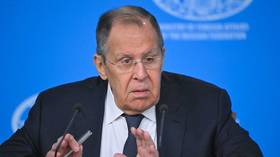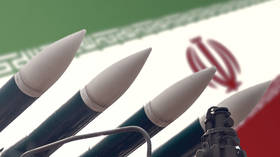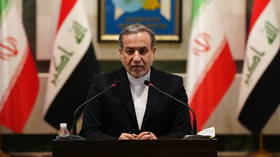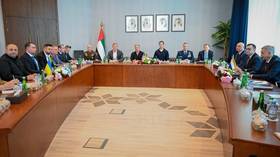Sealing the deal: Can Kerry and Lavrov fix the reset?
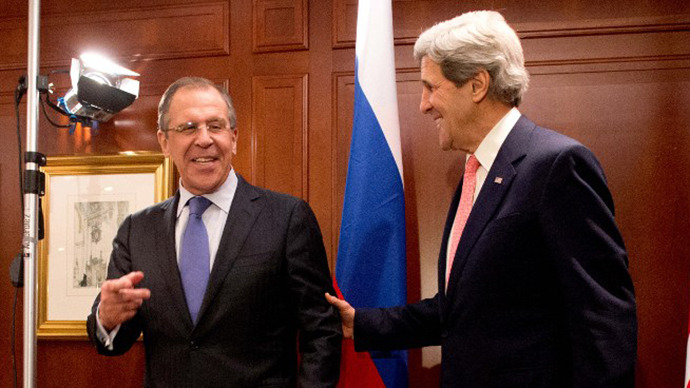
As two veteran US and Russian statesmen met for talks in Germany, observers applauded early signals that relations between Moscow and Washington are on the road to recovery. Or was it just another golden photo opportunity?
Reports of John Kerry’s first meeting in his new post as the US Secretary of State with Russian Foreign Minister Sergey Lavrov were mostly upbeat. Perhaps the most glowing assessment of the talks came from US Ambassador to Russia Michael McFaul, who declared via Twitter: “Good start!”
However, despite the enthusiasm over this inaugural meeting between two prominent political figures, it is difficult to shake the feeling that we have been here before. That despite the warm gestures and proffered pledges for partnership and cooperation, the United States and Russia appear as two ships passing in the night, each bound for completely different destinations.
From Moscow's perspective, it would require immense optimism not to view with some suspicion and even more cynicism any promises held out by the United States. After all, since that electric moment in March 2009 when Hillary Clinton and Sergey Lavrov jointly activated a mistranslated ‘reset’ button (the Russian word for "overload" was used instead of "reset"), to the ‘broken telephone’ incident between Kerry and Lavrov, Russian-US relations have come full circle.
Or it could be argued that technological metaphors have not served the relationship very well.
Earlier this month, speculation of a Russia-US breakdown was rife when it was reported that John Kerry had attempted - and failed - to reach Sergey Lavrov by telephone on two occasions. The Foreign Ministry explained that Lavrov had been traveling in Africa at the time of the missed calls. However, could anybody really blame Lavrov if he had deliberately refused to pick up the receiver?
After all, the Russian minister has certainly witnessed his share of pledges of cooperation from the United States go up in smoke. Indeed, Washington deserves a large share of the blame for not moving the reset beyond the merely rhetorical stage. For example, the US - and despite all the hyperbole of a reset with Moscow - has been reluctant to bring Russia on board the US missile defense shield project planned for Eastern Europe, just miles from the Russian border. Naturally, Russia views this system as a threat to its national security and a destabilizing factor in the strategic balance of forces. Despite Moscow’s repeated warnings of another arms race unless the two sides find a compromise on the issue, the position of the US and NATO remains intractable.
The US missile defense system, however, is just the tip of the iceberg as far as Russia-US relations are concerned. From the smoldering Arab spring, to the ongoing Syrian crisis, compounded by the Iranian nuclear showdown, Washington, which seems to relish its role as the global beat cop, may be forced to conclude that it is impossible to confront these multiple global challenges without Russia’s invaluable cooperation.
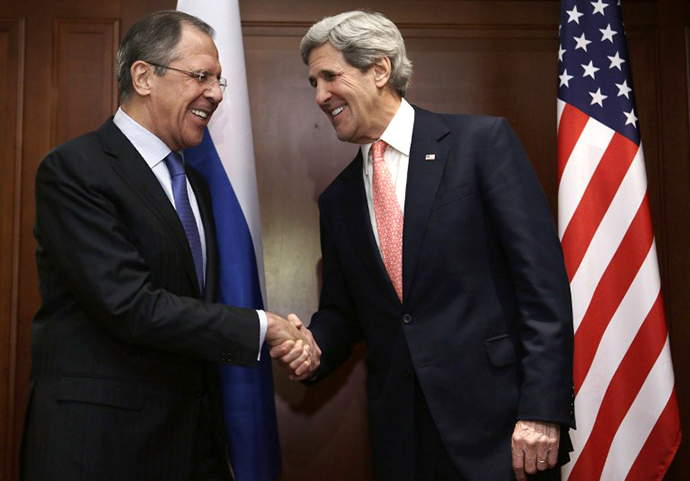
Meanwhile, judging by some
recent events in Washington, the seeds for change may have been
already planted. On the same day that Kerry and Lavrov were meeting
in Berlin, the US Senate confirmed the nomination of Chuck Hagel as
the new US Secretary of Defense.
Moscow views the nomination with cautious optimism, since Hagel has endorsed cooperation between the United States and Russia on the controversial US missile defense project, which he believes would result in enhancing the security of both countries.
Another further sign that Kerry and Lavrov may have what it takes to get the bilateral relationship on track emerged following their meeting in Berlin, which Lavrov praised as “quite constructive.”
On the thorny subject of Syria, the Russian minister said the two reaffirmed their “intention to do all Russia and the US can do (to resolve the crisis).”
It's not that everything depends on us, but we shall do all we can to create conditions for the earliest start of a dialogue between the (Syrian) government and the opposition, he added.
Although the Russia-US relationship has its share of obstacles, it is clear that a bilateral partnership between the two nuclear superpowers would only serve to enhance global security.
Now we will see if John Kerry and Sergey Lavrov can find the political will in their respective countries to see the reset through to fruition.
Robert Bridge, RT
The statements, views and opinions
expressed in this column are solely those of the author and do not
necessarily represent those of RT.
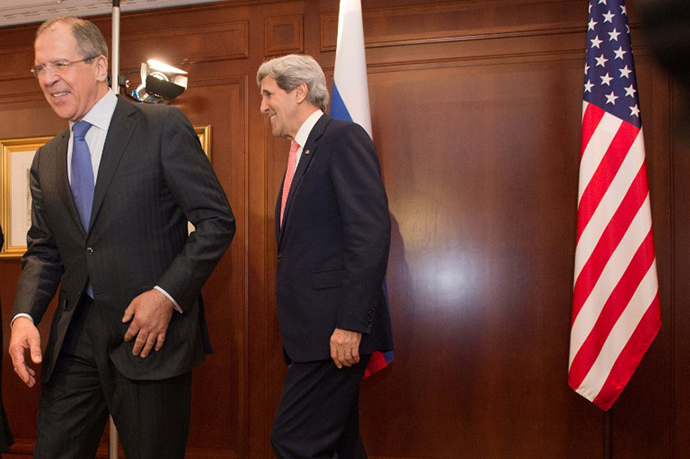
The statements, views and opinions expressed in this column are solely those of the author and do not necessarily represent those of RT.


